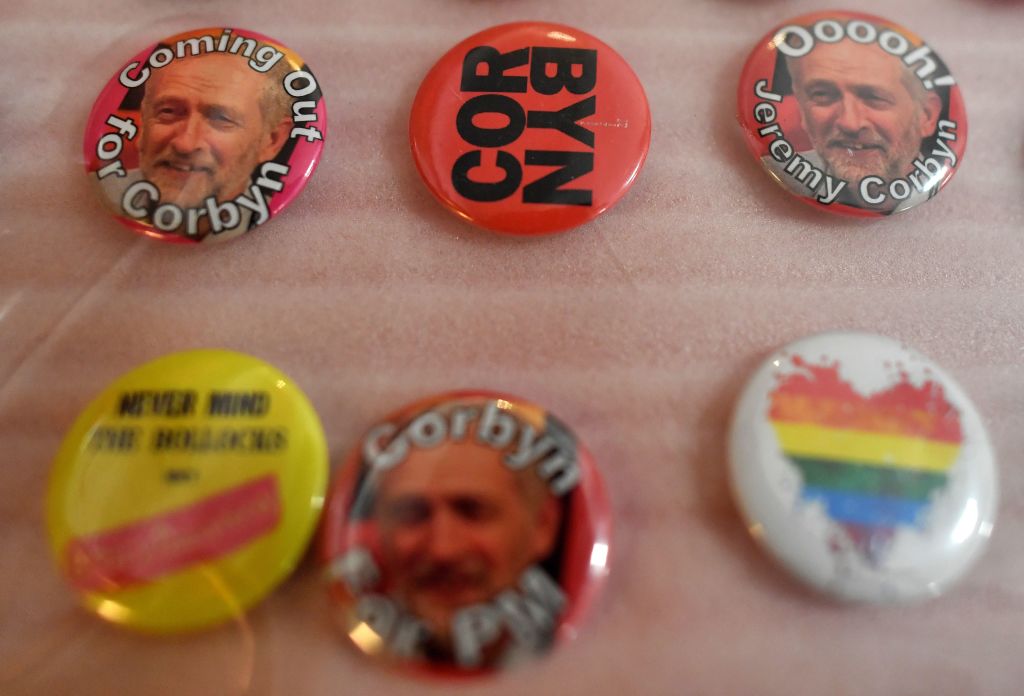There is a problem with Sir Keir Starmer’s reported plan to expel 1,000 Labour members associated with ‘poisonous’ groups, and not just that there are way more than a thousand poisonous people in the Labour party. The problem – and it’s a common error – is that Sir Keir exaggerates the role played by the far-left in bringing Labour to the point where it has lost four general elections in a row and last led the Tories in a poll almost six months ago. The cranks became more visible after Ed Miliband’s election as leader, more numerous thanks to his three-quid revolution and more powerful when that policy put Jeremy Corbyn in charge, but they alone are not to blame for the party’s current malaise.
Note the division of labour: the cranks do the crankery and the soft-left does the enabling. The far-left recruited legions of banal fanatics into the Labour party, but the soft-left held open the door for them. The far-left transformed Labour into a halfway house for every strain of extremism imaginable, but the soft-left continued to pay the rent. The far-left took an undercurrent of anti-Semitism and turned it into an institutional culture, but the soft-left kept propping up the institution.
Labour’s original sin is not socialism or Fabianism or trade unionism — it’s sentimentalism
At every point on Labour’s journey from hopelessly idealistic but basically decent movement for social democracy to the BNP for social science graduates, the soft-left has been there to accommodate, appease, excuse, justify, fellow-travel and combine with the most extreme, destructive and reactionary forces — all because they were Labour.
Labour’s original sin is not socialism or Fabianism or trade unionism — it’s sentimentalism. Labour exists as much to romanticise and mythologise itself as it does to win elections. Convinced of its own ethical primacy over its opponents, especially the Tories, there is nothing Labour can do — not even make war on British Jews — that cannot be reconciled with this moral superiority complex. Expel all the Zionism-loathers and Rothschild-foamers you want but it won’t make a bit of difference. Labour’s sentimentalism is in the bones. You either have to make peace with it or find a new body for your political soul.
The soft-left was aghast at Corbyn’s election and swore to fight him all the way. All the way turned out to be the first sign of an election.
Honourable social democrats did the only thing their principles would allow and walked away from the party or pledged to oppose a Corbyn-led government, but many more stayed. These were the Jess Phillipses and the Stephen Kinnocks, the Yvette Coopers and the Keir Starmers. They made their excuses, of course. They didn’t like him either. They were Staying to Fight™. He would lose and then David Miliband would come back from New York.
What they could not bring themselves to do was say the Labour party was unfit for office and they would have no part in helping it get into power. They tutted and tweeted, turned up at the odd rally and even got bolshie now and then at the Parliamentary Labour Party, but when an election was called they hardened their hearts to the fear and anguish of British Jews and campaigned for a Labour government. They did so not once but twice and would have done it as many times as their party asked of them. They could do nothing else. They were Labour.
It wouldn’t matter if you booted every last crank out of the party. The soft-left, the dependable doormats of the Labour movement, would still be there waiting for the next opportunity to fulfil their function. When one day the cranks return (and they will), when they regain control of the party (and they will), they will expect the soft left to object and organise and plot and resist but, in the end, to go along with it — and they will.
A Labour party will get back into government, but this Labour party doesn’t deserve to. Eventually it will have another 2015 moment to remind everyone of why that is. Establishing a new social democratic party — one free from the sentimentalism of Labour; parliamentarian and pragmatic; actively hostile to cranks and anti-Semites — would be arduous, expensive, divisive and potentially unsuccessful, but it is the kind of centre-left party Britain needs. A party that is about winning power, changing lives, improving systems and creating opportunities. A party that is about more than being Labour.







Comments